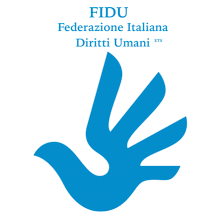
Report March 2025
Submitted
FIDU (Italian Federation for Human Rights) is a global organization dedicated to safeguarding human rights, upholding the rule of law, and supporting victims of human rights abuses. FIDU’s work primarily focuses on advocacy, awareness campaigns, fact-finding missions, monitoring elections and trials, and reporting abuses. To achieve its mission, FIDU draws upon its vast international network, which includes civil society organizations (CSOs), universities, media professionals, lawyers, and experts. These collaborations aim to strengthen traditional mechanisms for human rights protection and introduce innovative tools to combat impunity and defend victims of abuses. Recognizing the growing threats posed by disinformation and foreign interference to human rights and the rule of law, FIDU actively engages in efforts to counter these phenomena. FIDU’s work in this field is focused on raising awareness about the negative impact of disinformation and foreign interference on society, as well as monitoring and analysing the narratives, methodologies, and targets used in disinformation campaigns.
During the reporting period and in relation to the Code’s commitments, FIDU successfully completed the implementation of two key projects: one, under the European Commission’s CERV Programme, Media Literacy for Democracy (MLFD), which aimed at promoting an effective and inclusive European media literacy strategy among citizens to protect democracy, another one, New Media Literacy Strategies to Counter Antisemitism, within the Coalition to Counter Online Antisemitism (CCOA), focused on developing media literacy programs to counter antisemitism. Both initiatives contributed to empower experts across the EU to create and implement strategies against hate speech, misinformation, and disinformation targeting our society. In addition to these projects, FIDU organized numerous events, including conferences and workshops on media literacy, disinformation, and foreign interference. Members of the organization also participated in various national and international events to further its advocacy efforts and raise awareness on the necessity of a multidisciplinary and cross-sectoral approach to address these issues. Specifically, during the reporting period, FIDU’s activities related to media literacy and the fight against disinformation have focused on four main areas: advocacy, training, participation in cross-sectoral activities, and publications. FIDU’s advocacy efforts focused on organizing various national and international public events. These activities involved discussions on disinformation, media literacy, and strategies to face the current challenges. FIDU collaborated with multiple institutions, experts, and stakeholders to present findings, share policy recommendations, and explore solutions to address the challenges posed by disinformation and foreign interference. In terms of training, within the framework of the MLFD and the New Media Literacy Strategies to Counter Antisemitism projects, FIDU organized and implemented several national and international training sessions and workshops, both in person and online, primarily targeting students, young professionals, and media workers. Regarding the participation in cross-sectoral activities, FIDU participated in several events aimed at exchanging best practices and insights on media literacy and advancing recommendations. Finally, regarding publications, the main publications released during the reporting period are related to the findings and recommendations of the MLFD project MLFD Policy Recommendations and of the New Media Literacy Strategies to Counter Antisemitism project Final Report.
Furthermore, FIDU’s work on disinformation extends to the ongoing Russian war of aggression against Ukraine. In collaboration with Ukrainian partners, FIDU works to raise awareness of the realities of the war while combating pro-Kremlin narratives. This includes continuous analysis of how these narratives are spread through both traditional and new media, identifying the targets of such campaigns, and examining the methods used in these operations.
FIDU’s participation in the Code of Practice on Disinformation is specifically related to the subgroups Crisis Response and Outreach and Integration of New Signatories.